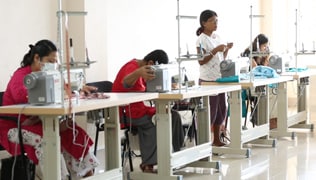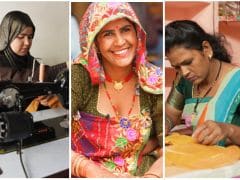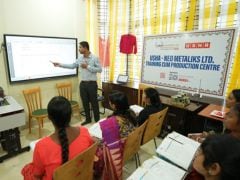Meet The Super Achievers Of Usha Silai School, Fostering Financial Independence Among Women
In the past 12 years, over 33,000 Silai Schools have been opened. Some of the Silai School women have shown unmatched resilience and will to transform their lives. They have come a long way in the Silai School journey and are now looked up to as role models by other girls and women in their communities. Let's meet some of them.
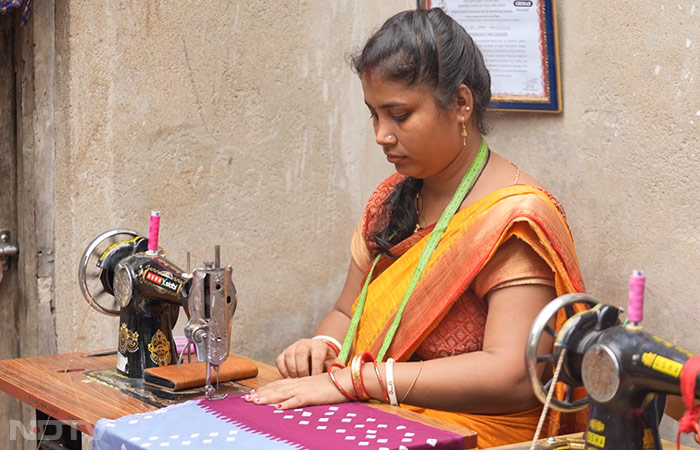
'I tell all the women that sewing is a good way to earn both a livelihood and people's respect,' says Suchismita Sahoo, Swavalamban Silai School teacher from Odisha. When Usha, in partnership with the Small Industries Development Bank of India (SIDBI), organised a training programme in the Kendrapara district, Suchismita was one of the 25 women who had come from the Tihidi district of Bhadrak block.
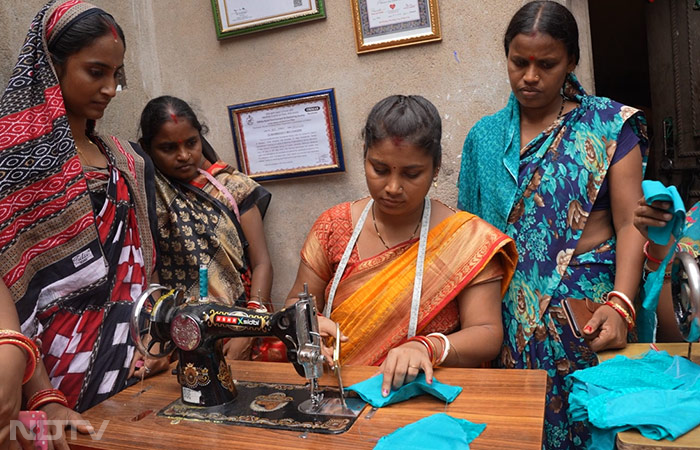
After receiving training from Usha in partnership with SIDBI, Suchismita established Swavalamban Silai School at her house and trained 57 people in her block. Being an active member of her village's Self-Help Group, she began enrolling students and undertaking sewing projects. She says, 'Earlier I used to earn Rs. 300 to Rs. 500 at home whereas now I earn up to Rs. 8,000 - Rs. 10,000 in a month.'
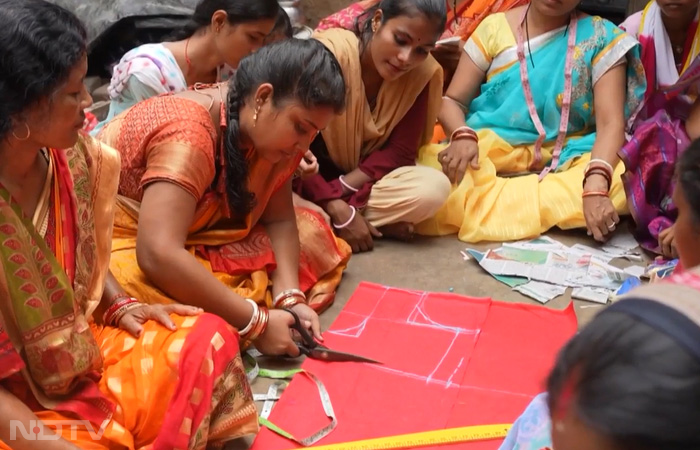
Suchismita has not restricted the benefits to herself but is actively supporting Usha at the grassroots levels by establishing various Training-cum-Production Centers and working committedly as an exemplary local resource person. She went for further training to Balasore where she trained on industrial machines after which she got a master trainer certificate from ORMAS. She has trained 20 girls in Balasore, making them self-reliant.
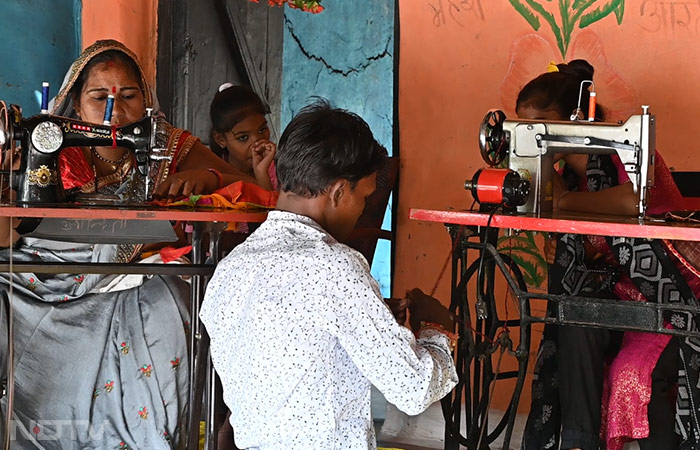
From Odisha, we move to Madhya Pradesh, the heart of India. In Churka Tola village of Madhya Pradesh lives 37-year-old Anita Bal, who is rising above her disability, by practising the art of stitching. Anita's husband, who is also disabled, used to run a tyre repair shop but the earnings from his business weren't enough to support a family of five. It was then Anita got associated with the Usha Silai School.
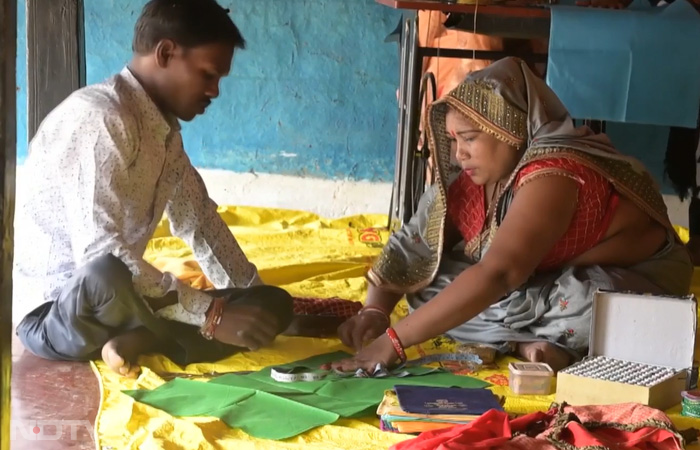
In September 2021, she got the opportunity to participate in a nine-day residential program at the Usha SIDBI Swavalamban Sewing School. She proved to be an exceptional performer, and on the final day, she was awarded a sewing machine, a signboard, a syllabus book, a service manual, and a certificate to establish her own Swavalamban Usha Silai School.
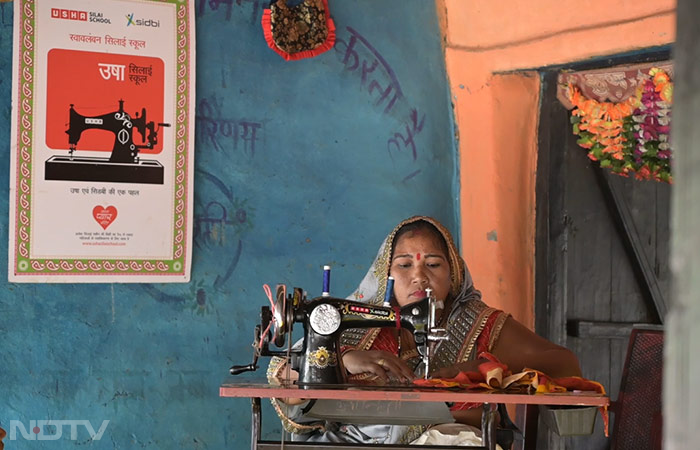
Anita imparted the sewing lessons to her husband and now the duo works together. Having established her own Swavalamban Silai School, Anita currently trains a group of two to four women, charging each student Rs 200. She has already taught to stitch and sew to 15-20 women and helped them become self-sufficient.
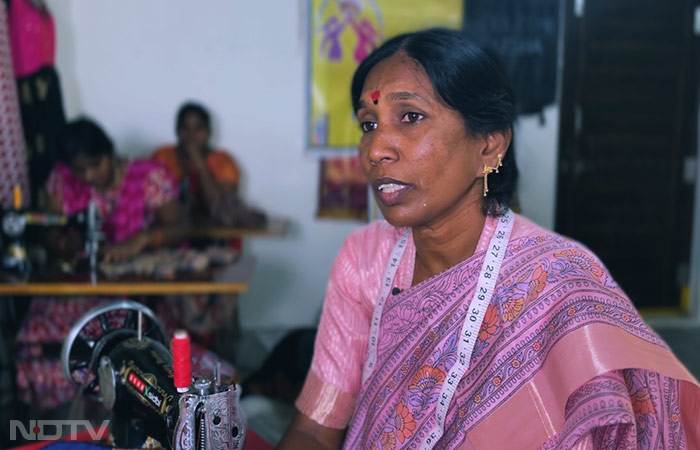
Similarly, Balamani, one of the super achievers of the Usha Silai program, trains other women in sewing and prepares them to be self-employed at her Usha Silai School in Jadcherla, Telangana. What is astounding, is the pace and the scale at which Balamani has formed a community of her own, by training more than 340 women, who can potentially employ many other women, establishing a network of artisans and women proficient in more than sewing and embroidery.
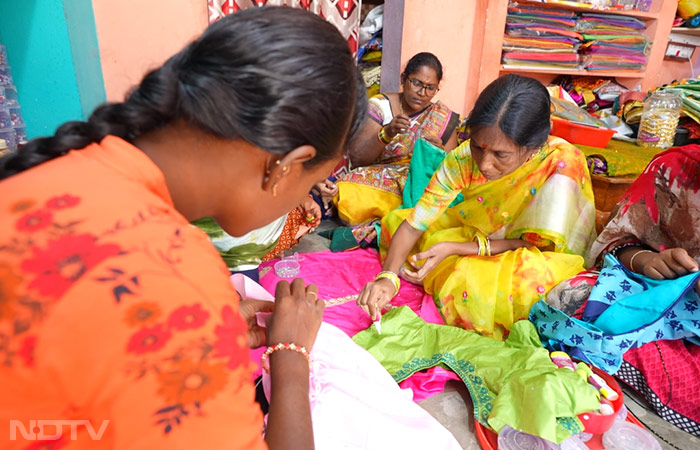
In addition to providing training, Balamani runs two tailoring shops - one of them right from her house, employing the very women who have completed their training. The entire production process is carried out not only on high-end machines, but also through the traditional Maggam work, which involves intricate embroidery.
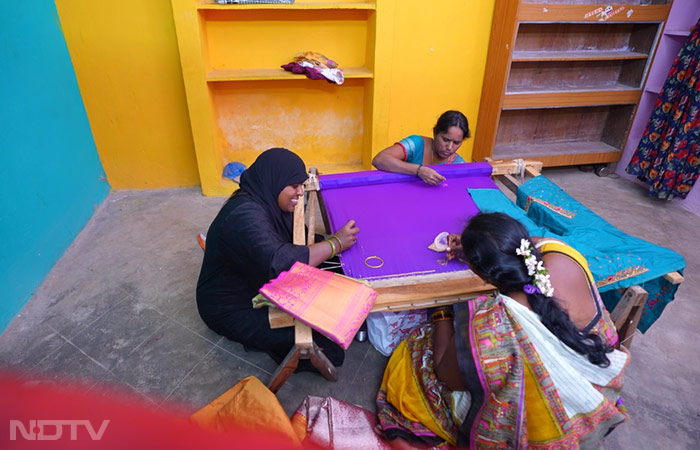
For Balamani, it does not stop only at sewing. There is yet another arena where she has been leaving her mark. Two years ago, Balamani and her husband Gopal founded the Women's Development Society, through which she has been able to provide clothes, rice and fruits to poor people, those in old age homes and orphanages, and to people with disabilities.
Adopt a Silai School
About the Initiative
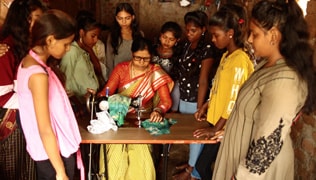
Kushalta Ke Kadam, an initiative by USHA Silai School and NDTV has entered its eighth season. The aim is to empower more women across rural India by teaching them sewing skills and helping them open new doors of opportunities for themselves. The initiative encourages rural women to become financially independent and entrepreneurs by taking up sewing and training others in their respective communities.
Since 2011, the USHA Silai School initiative has trained more than 12 lakh rural women through over 33,000 Silai schools, spanning over 20,751 villages across India.
The women earn Rs. 4,000 – 5,000 per month on an average, with the highest recorded monthly earning being Rs. 84,000 in a month. This earning works as a catalyst towards building their self-confidence, reducing gender inequities, and raising their stature within their families and in society at large.
Latest Stories
- Team NDTV | Monday February 16, 2026
Odisha's Suchismita Sahu, Rajasthan's Preeti Prajapat, Manipur's Akhirun—Usha Silai School's Kushalta Ke Kadam celebrates these awardees, from homemakers to master trainers earning accolades
- Team NDTV | Thursday February 12, 2026
From Ladakh peaks to Assam fringes, Usha Silai School trains tribal women in Turtuk, Kargil & Dakhinkuchi—crafting livelihoods with armed forces, NHPC & NGOs. Stitching national resilience
- Team NDTV | Thursday January 29, 2026
From West Bengal's transgender tailors to Telangana's tribal seamstresses and Meghalaya's embroidery revivalists, Usha Silai School's Kushalta Ke Kadam partners with NIRDPR and state governments
- Team NDTV | Tuesday February 03, 2026
In Odisha's mining heartlands, Mahanadi Coalfields Limited teams with Usha Silai School's Kushalta Ke Kadam and Gram Utthan, empowering tribal women turning them into entrepreneurs
- Written by Team NDTV | Friday January 02, 2026
Usha Silai Schools give second chances to women like Srinagar's Marifat, who rebuilt after widowhood; Madhya Pradesh's Jyoti, escaping abuse to run her own center; and Rajasthan's Vimla, rising from child marriage to tailor and teacher. Through nine-day training, they gain sewing skills, confidence, and income proving one stitch mends lives and inspires communities.
- Team NDTV | Friday December 26, 2025
A new wave of corporate-community partnerships is equipping rural women with skills, income and confidence

